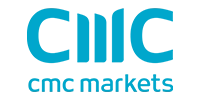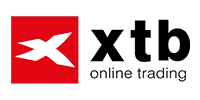Table Of Contents
- Best FOREX Brokers in Brazil in 2026
- Top Tips for Choosing the Best FOREX brokers in Brazil
- Best FOREX Brokers in Brazil in 2026
- What is FOREX and Why Do We Need a Broker to Trade?
- How to Open a Trading Account to Start Trading FOREX?
- How Much Should Beginners Trade With?
- How to Start Learning About FOREX Trading
- Can You Trade Without Prior Experience?
- How Do I Choose the Best FOREX Broker in Brazil?
- Regulation and Licensing
- Leverage
- Stop Out
- Commissions and Fees
- Tradable Assets and Instruments
- Payments, Deposits, and Withdrawals in Brazil
- FOREX Trading Customer Service
- Ask Other Traders on Our Network
- What Trading Platforms, Tools and Features Should a Broker Offer?
- Which Brazilian FOREX Broker Has the Best Platform?
- Which Brazilian FOREX Broker Charges the Lowest Fees?
- Which is the Best FOREX Broker in Brazil for the Most CFDs?
- Which is the Best FOREX Broker for the Most Assets?
- Which Brazilian FOREX Broker is Best for Professionals?
- FOREX Trading Scams and How to Avoid Them
- The Dos and Don’ts of FOREX Brokers
- Who is Arincen and What Do We Do?
- Conclusion
- Arincen’s Review Methodology
Best FOREX Brokers in Brazil 2026
With many years of meticulous FOREX broker testing, Arincen stands out as a voice of authority. Our analyses, shaped by exhaustive data collection, are trusted by many. Each year, we gather 120 data points from more than 100 brokers. Our team of more than 20 people collaborate extensively to produce high-quality broker reviews like this one. For a detailed explanation of how we test brokers, navigate to the bottom of this article.
Note: We earn money by selling ads, placements, or through partnerships with some companies we have agreements with, learn more.
At Arincen, we are always striving to simplify the world of trading. For this reason, we will be listing the best FOREX brokers in Brazil today. This ranking is the result of a detailed review process carried out by our in-house experts. We will share our review methodology so you can understand why we chose the companies we did.
Best FOREX Brokers in Brazil in 2026
| Company Name | Regulations | Minimum Deposit | Main Branch | |
|---|---|---|---|---|

ICM capital |
FCA | $200 | London | |
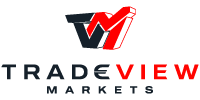
Tradeview |
SCA | $0 | New York, United States of America | |
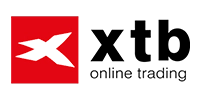
XTB |
FCA | 0$ | United Kingdom | |

IG Group |
FCA | $250 | United Kingdom |

| Company Name | ICM capital |
| Regulations | FCA |
| Minimum Deposit | $200 |
| Main Branch | London |

| Company Name | Tradeview |
| Regulations | SCA |
| Minimum Deposit | $0 |
| Main Branch | New York, United States of America |

| Company Name | XTB |
| Regulations | FCA |
| Minimum Deposit | 0$ |
| Main Branch | United Kingdom |

| Company Name | IG Group |
| Regulations | FCA |
| Minimum Deposit | $250 |
| Main Branch | United Kingdom |
Top Tips for Choosing the Best FOREX brokers in Brazil
- The broker must be regulated by a top-tier regulator, this could be a local broker or an international broker
- The broker must have a competitive fee schedule
- The broker must offer an extensive array of financial assets to trade
- The broker must have a responsive customer service team
- The broker should have a detailed research and educational offering
Best FOREX Brokers in Brazil in 2026
With so many choices out there, it's tough to select the right broker. It's a good thing we've done the work for you. Here is a summary of each broker according to specific criteria, along with their pros and cons
ICM Capital -91.10: Best Deposit and Withdrawal Broker
Tradeview - 90.00: Trusted broker that offers very low trading costs as well as comprehensive financial literacy materials for its clients.
XTB - 85.55: Best Customer Service Broker
IG - 85.45: Best Regulations Broker plus Convenient Platform
Saxo Bank - 80.09: Excellent Private Trading Platform
CMC Markets - 80.07: More than 9,000 Assets
ThinkMarkets - 80.05: Aimed at the Audience of Traders

ICM capital
ICM Capital is a UK-origin broker that operates worldwide. The firm provides access to diverse trading products, including FOREX, commodities, futures, and indices. ICM offers a secure and efficient trading environment by combining advanced technology with deep liquidity. The company prides itself on delivering high liquidity, tight spreads, mobile trading, and advanced technical analysis.
Why we picked ICM Capital
For its robust regulatory framework and global oversight. Its presence across multiple jurisdictions demonstrates a genuine commitment to investor protection. This foundation makes it a dependable choice for both new and seasoned traders.
| Broker Evaluation | 9.11 |
| Regulations | FCA |
| Minimum Deposit | $200 |
| Islamic Account | yes |
| Payment Methods | Bank transfer, credit card, Electronic Banks, Crypto |
| Main Branch | London |
| Customer Service | Market Opening Hours |
| Demo Account | Yes |
| Trading Platforms | MT4, MT5, C TRADER, Web Platform |
Pros
-
Segregated client funds.
-
Regulated by the UK’s FCA.
-
Long trading history from 2009.
-
More than 300,000 traders, showing trust.
-
Decent funding options.
-
No swaps.
-
MetaTrader4 (MT4) desktop and mobile download.
-
Competitive spreads
-
ECN spreads starting from zero pips.
-
Fast execution and no-requotes.
Cons
-
No proprietary platform.
-
No US services.
-
Limited cryptocurrency offerings.
-
Inactivity fees which deter casual traders.

Tradeview
Tradeview Markets, the parent company of Tradeview Forex, was established in 2004 and is headquartered in the Cayman Islands. It is committed to offering a broad and accessible trading environment through ECN trading with direct access to dozens of banks and prime liquidity providers, ensuring tight spreads. The broker offers access to a wide range of financial instruments, including FOREX, indices, stocks, cryptocurrencies, and commodities.
Why we chose Tradeview
Our choice was influenced by this broker’s transparent fee structure and competitive pricing, with low spreads and clear cost disclosures. Traders benefit from predictable pricing without hidden charges. Cost efficiency is a crucial advantage in high-frequency and active trading environments.
| Broker Evaluation | 10.00 |
| Regulations | SCA |
| Minimum Deposit | $0 |
| Islamic Account | Yes |
| Payment Methods | Bank Transfer, Credit Cards, Crypto, Electronic banks, local deposits |
| Main Branch | New York, United States of America |
| Customer Service | |
| Demo Account | Yes |
| Trading Platforms | Metatrader 4, Metatrader 5, cTrader, API/FIX |
Pros
-
Variety of trading platforms, such as MT4, MT5, cTrader, and Currenex, catering to different trading preferences and strategies.
-
Provides ECN trading through its innovative Liquidity Connector®, granting direct access to over 50 banks and liquidity providers. Offers tight spreads starting from 0 pips.
-
A low minimum deposit of only $0 is required to start trading, making it accessible to a wide range of traders.
-
Offers a broad range of financial instruments, including FOREX, indices, stocks, cryptocurrencies, and commodities, thus catering to diverse trading interests.
-
Offers educational materials and a demo account, suitable for both beginners and experienced traders looking to refine their strategies.
-
Supports automated trading through the use of Expert Advisors (EA) on MT4 and MT5 platforms.
-
Regulated by CIMA, MFSA, and will soon be regulated by the UK’s Financial Conduct Authority (FCA).
-
Offers global customer service in multiple languages, catering to international traders.
-
Offers competitive leverage up to 400:1.
-
Charges no fees for deposits, making it cost-effective for traders to fund their accounts.
Cons
-
While regulated by CIMA and the MFSA, the broker is still in the final stages of becoming regulated by the tier-one FCA.
-
This means, unfortunately, that the broker currently has no way of offering compensation to affected traders if the broker goes bust. Of course, once FCA regulation is obtained, it will be mandatory for the broker to be part of the Financial Services Compensation Scheme (FSCS) where you could be entitled to compensation of up to £85,000.
-
Trades on the Innovative Liquidity Connector® account are subject to commission charges, which may add to trading costs.
-
Lacks a dedicated mobile app, relying instead on the mobile versions of its available trading platforms.
-
While offering high leverage up to 400:1 can be an advantage, it also introduces significant risks, especially for new traders.

XTB
XTB is a well-regarded broker known for its low costs, extensive asset selection, and advanced trading tools. Founded in 2002 in Poland, it has created a proprietary xStation 5 platform that offers robust features like real-time performance stats, sentiment analysis, and heat mapping. XTB's educational resources are comprehensive, catering to all skill levels with video tutorials, guides, and an accessible Trading Academy. XTB is an excellent choice for cost-conscious traders looking for diverse investment options and high-quality support.
Why we chose XTB
We chose this broker for its responsive and multilingual customer support, available across channels when assistance is needed most. Quick, professional responses reduce friction and build trader confidence. Support quality often reflects overall service reliability.
| Broker Evaluation | 8.55 |
| Regulations | FCA |
| Minimum Deposit | 0$ |
| Islamic Account | yes |
| Payment Methods | Bank transfer, Credit Card, Electronic Banks |
| Main Branch | United Kingdom |
| Customer Service | Market Opening Hours |
| Demo Account | Yes |
| Trading Platforms | MT4, xStation |
Pros
-
20-year history of operation.
-
Regulated by the FCA (UK) and CySEC in Cyprus.
-
Globally recognized, having won multiple awards.
-
Some of the lowest FOREX spreads in the market.
-
Offers protection for client accounts.
-
Emphasis on customer service.
-
Excellent support, as well as learning and research tools.
Cons
-
Does not accept US clients.
-
Number of instruments offered is average-sized.
-
No GSLO.
-
No back-testing or automated trading capabilities.
-
No social trading.

IG Group
IG Group is a highly regarded publicly traded broker that is licensed by 10 regulatory bodies, including the FCA, in its home base of the UK. It offers more than 17,000 financial assets to trade, including currencies, commodities, regular stocks, contracts for difference stocks, ETFs, indices, and cryptocurrencies. Further, it has its own state-of-the-art trading platform and offers a relatively low spread.
Why we chose IG Group
For its clear commitment to transparency and fair dealing, with open terms and client-friendly policies. Honest reporting builds trust and fosters long-term client relationships. We value brokers who prioritise clarity over complexity.
| Broker Evaluation | 8.54 |
| Regulations | FCA |
| Minimum Deposit | $250 |
| Islamic Account | yes |
| Payment Methods | Bank transfer - credit card - Electronic Banks |
| Main Branch | United Kingdom |
| Customer Service | Market Opening Hours |
| Demo Account | Yes |
| Trading Platforms | IG Trading, MT4,ProRealTime,L2 Dealer |
Pros
-
Intuitive mobile and tablet platforms.
-
Low spread costs.
-
Client education offering extensive research materials.
-
Regulated by many reputable authorities.
-
UK and EU clients get negative balance protection.
-
Financially stable and publicly-listed.
-
Rapid response to customer service queries.
-
Extensive range of trading assets.
-
Powerful social trading community.
Cons
-
U.S. clients are limited to FOREX trading only.
-
U.S. clients do not receive negative balance protection.
-
IG CFD prices can be high by industry standards.
-
Limited product portfolio of only CFD and options in many countries.
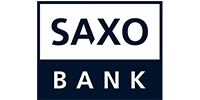
SAXO BANK
Saxo Bank is a well-established, low-risk broker based in Denmark that offers a wide range of trading services to sophisticated traders, institutions, and professional investors. It operates under strict regulatory oversight, ensuring a secure trading environment. The broker provides advanced trading platforms, including SaxoTraderPRO and SaxoTraderGO, catering to high-volume and professional traders with competitive spreads and access to over 71,000 instruments.
Why we chose Saxo Bank
For its comprehensive product range, spanning forex, commodities, indices, and popular CFDs. Such variety allows traders to build diversified portfolios within a single account. This breadth of markets supports evolving strategies and risk preferences.
| Broker Evaluation | 8.09 |
| Regulations | FCA |
| Minimum Deposit | $0 |
| Islamic Account | No |
| Payment Methods | Bank transfer, Credit Card |
| Main Branch | Copenhagen, Denmark |
| Customer Service | Market Opening Hours |
| Demo Account | Yes |
| Trading Platforms | SaxoTrader |
Pros
-
Extensive range of offerings.
-
Offers portfolio-based margin trading for pros.
-
Regulated by top regulators.
-
Excellent trading platforms.
-
Diverse account types.
-
Among the industry’s best research tools.
-
Offers protection for client accounts.
-
No inactivity fee.
-
No platform fees.
-
No minimum funding for entry-level accounts.
Cons
-
Some bonds, options, and futures fees are high.
-
With so many assets, fees can be confusing.
-
High minimum deposit for Platinum and VIP accounts.
-
Does not accept US clients.
-
No MT4 for traders who are used to the platform.
-
No GSLO.
-
No Islamic accounts.
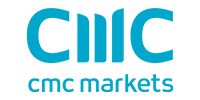
CMC MARKETS
CMC Markets is a global CFD and FOREX broker established in 1989. It is regulated by several authorities globally. The company delivers a formidable offering for traders thanks to excellent pricing, nearly 12,000 tradable instruments, and its proprietary Next Generation trading platform. The platform comes packed with quality research, innovative trading tools, and powerful charting. CMC provides traders with access to an extensive range of CFDs and spread betting across several asset classes.
Why we chose CMC Markets
This broker’s risk management tools and flexible order types stood out to us, enabling traders to tailor positions according to market conditions. Features like stop losses, take profits, and conditional orders provide strategic control. These tools are essential for disciplined trading.
| Broker Evaluation | 8.07 |
| Regulations | FCA |
| Minimum Deposit | 0$ |
| Islamic Account | No |
| Payment Methods | Bank transfer, Credit Card, Electronic Banks |
| Main Branch | United Kingdom |
| Customer Service | Market Opening Hours |
| Demo Account | Yes |
| Trading Platforms | Proprietary Platform, MT4, Web Platform |
Pros
-
Extensive range of offerings.
-
Regulated by the FCA (UK) and other top regulators.
-
Low FOREX fees.
-
Emphasis on education and customer service.
-
Great Web and mobile platforms.
-
Offers protection for client accounts.
-
Research amenities are industry leading.
Cons
-
Does not accept US clients.
-
High CFD spreads for certain indices.
-
It only offers CFD trading, so traders cannot own the underlying asset.
-
Does not support deposits and withdrawals through electronic payments.

think markets
ThinkMarkets is a multi-regulated broker with offices around the globe. The firm is primarily a CFD broker, allowing you to trade across 4,000 instruments in FOREX, futures, commodities, indices, ETFs, crypto, and stocks. With an emphasis on superior customer service, ThinkMarkets maintains round-the-clock support in several languages. It provides different trading accounts suited to individual traders' needs. This includes zero-commission accounts and access to trading guides, analysis tools, and industry news feeds.
Why we chose ThinkMarkets
We selected this broker for its fast and flexible funding options, including bank transfers and card payments. Smooth deposits and withdrawals reduce administrative delays and support efficient capital management. Accessibility of funds is an often-overlooked but essential feature.
| Broker Evaluation | 8.05 |
| Regulations | FCA |
| Minimum Deposit | $0 |
| Islamic Account | Yes |
| Payment Methods | Bank transfer - credit card - Electronic Banks - Crypto |
| Main Branch | Australia |
| Customer Service | Market Opening Hours |
| Demo Account | Yes |
| Trading Platforms | Proprietary Platform, Web Platform, MT4, MT5 |
Pros
-
Beginner assistance is offered through round-the-clock channels.
-
Spreads are as low as 0.0 pips.
-
Round-the-clock expert customer service.
-
CFD shares and indices come at no extra fee.
-
Zero broker fees for FOREX trading.
-
Technical analysis and quality market information.
Cons
-
No binary options are offered.
-
Commissions are charged for two account types.
-
Range of tradeable assets is not as wide as some competitors.
-
No US clients allowed.
There is a high degree of risk involved in trading securities like FOREX, or CFDs, which are highly complex instruments. As a trader, you could be exposed to excessive leverage, questionable broker tactics, market volatility, and limited regulatory protection. Despite your best trading techniques and risk management strategies, your efforts may not be profitable, and you could suffer losses.
What is FOREX and Why Do We Need a Broker to Trade?
The foreign exchange market is a decentralized marketplace where institutional and retail traders buy and sell global currencies. Currency trading is conducted electronically over the counter (OTC). This means that all transactions occur via computer networks between traders all over the world rather than on one centralized exchange. The FOREX market operates 24 hours a day and five days a week (Monday to Friday), except for international holidays. It is the largest financial market in the world with some six trillion dollars changing hands daily. Many of the best FOREX brokers in Brazil play a key role in this marketplace by enabling you to buy and sell through a trading platform. Most trading platforms are accessible in web and mobile format.
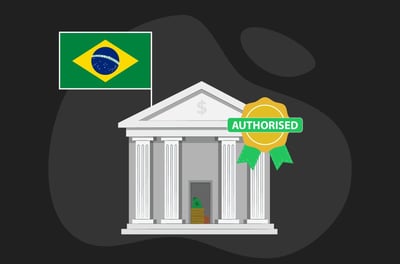
How to Open a Trading Account to Start Trading FOREX?
Opening a FOREX trading account is easy. Once you have chosen your preferred broker, you must start by filling out an application form as part of the ‘open account’ process. It is normal that you will be asked to provide some personal documents. These are usually your national identity documents and proof of address. This is part of Know Your Customer (KYC) regulations. Remember that some brokers have slightly different requirements than others.
Once your account has been approved, normally one to two days after you make the application, you will be able to fund your account by making the first deposit. After that, your trading journey can begin!
How Much Should Beginners Trade With?
You don’t need much to get started. Some of the best FOREX brokers for beginners allow you to start trading with as little as $1. Naturally, you can't get very far with $1, even if you trade on margin. So, you need to capitalize your account with at least some money that will allow you to place trades. The amount is really up to you. However, it is recommended that you start by placing small trades to get to grips with the practice of trading as well as becoming familiar with your broker’s website before you move on to placing trades with more money.
How to Start Learning About FOREX Trading
A trading website like en.Arincen.com is a great place to start. We have a large list of curated articles that can give you all the information you need on common FOREX trading terms like pips, spreads, leverage, and support and resistance. We have also taken the time to prepare detailed articles on important topics such as FOREX trading strategies. Additionally, once on our website, you will find helpful video courses that cover the basics of FOREX trading. With this range of knowledge, you will be well on your way to starting life as a trader.
Remember also that your broker will normally have developed a detailed education and research repository themselves. That is also a good place to bolster your FOREX knowledge, with the extra benefit that your broker’s information will be slanted toward their own platform and resources, which makes it doubly useful.
Tip: Invest in Your knowledge
For every aspiring retail trader, knowledge is key to a successful trading journey. We invite you to delve into Arincen's goldmine of insights, strategies, and expert analyses. Whether you're just embarking on your trading venture or trying to level up your trading game, our resources are designed to give you all the information you need. Visit our educational resources here.
Can You Trade Without Prior Experience?
Tip for those who have no experience
We believe that a solid foundation in education and research is essential for every successful trader. That’s why we’ve created a set of resources specifically for you. Our comprehensive articles provide an understanding of the basics, while our videos offer insights from industry insiders. Stay updated with the latest developments in the market through our newsfeed, signals, and detailed analytics.
How Do I Choose the Best FOREX Broker in Brazil?
Don’t rush to open an account just because a broker advertises tight spreads or bonuses. Dig into where they’re regulated, how they safeguard client funds, and whether they offer negative balance protection. See if their trading app feels intuitive and stable. The “best” broker is the one that helps you trade confidently and sleep well at night.
Brazil has a large open economy that is developed, market-oriented, and dependent on international trade. It is the largest economy in South America. This country of roughly 215 million people has a diverse economy, with agriculture, tourism, and manufacturing being some of the major industries.
The country is known for its high-quality agricultural products, with iron ore, soybeans, sugar, and petroleum being major exports. It also has a well-developed tourism industry, with many visitors attracted to its vibrant beaches and excellent weather.
The Brazilian market is closely regulated, thanks to the Central Bank of Brazil. A FOREX transaction can only be executed if the company is licensed by the Central Bank because the Central Bank of Brazil is responsible for all of the regulatory oversight in the region. Furthermore, the trader will have to be a resident of Brazil and have a Brazilian bank account with their deposits available in the local currency.
Regulation and Licensing
FOREX brokers who offer their services to Brazilian citizens must be regulated by the Securities and Exchange Commission of Brazil (CVM) as we as the Brazilian Central Bank. Regulated brokers must follow common best practices, such as keeping their operating funds separate from client funds and complying with strict leverage rules.
It is always a good sign if your broker is active in other countries and has been regulated by other tier-1 bodies like the Financial Conduct Authority (FCA) in the UK and the Cyprus Securities and Exchange Commission (CySEC), which are two of the best regulators in the world.
The regulators that oversee FOREX trading also regulate other financial assets, such as crypto, commodities, and indices. If you want to learn more about some of the best-regarded regulators, read our article on regulation here. Remember that you do not have to use a broker with international regulation if your local broker is regulated by the CVM.
To verify the credibility of your broker, consider these steps:
Inquire if they have the proper license to handle FOREX
Ensure they're registered with a top-tier regulator, or at the very least, the local one for your region
Determine if your broker is enrolled in a compensation scheme
Regularly review your statements to ensure accuracy
It's essential to adhere to all relevant guidelines, not just the ones highlighted here, including those set by broker-associated organizations.
Make sure your broker is regulated by a reputable authority. Not all brokers are regulated by tier-one regulators, but you can still rest easy if your broker works with the regulator in your area. To verify if your broker is registered with a regulator, navigate to the regulator’s official website.
Leverage
Depending on the regulator under which your broker works, you will encounter different policies relative to leverage. Key regulators have implemented specific rules to limit the leverage offered to retail traders as a means of consumer protection. Remember, even if your broker is not regulated by these international brokers, as long as they are regulated by a competent local regulator, that’s a good enough start.
Here are selected leverage rules according to some key regulators:
CVM Brazil:
Between 50:1 and 100:1 for FOREX traders, which is significantly higher than the leverage provided in the equities and futures markets.
FCA UK:
30:1 for major currency pairs
20:1 for non-major currency pairs, gold, and major indices
Australian Securities and Investments Commission (ASIC) Australia:
30:1 for major currency pairs
20:1 for non-major currency pairs, gold, and major indices
Swiss Financial Market Supervisory Authority (FINMA) Switzerland:
FINMA has not set specific leverage limits like the FCA or ASIC. However, Swiss brokers must adhere to rigorous capital and risk management requirements, ensuring they don't offer excessively high leverage that could endanger their solvency or their clients' funds.
It's important to note that these regulations primarily apply to retail clients. Professional or institutional clients may have access to different leverage levels based on the regulatory environment and the broker's policies. As you can see, responsible regulators closely monitor leverage levels. However, you can still use the regulator in your country, even if it is not under a tier-one regulator.
High leverage can amplify potential profits, but it equally magnifies potential losses. It can put a stop to your trading career if not used carefully. The allure of high returns is tempting, but the risk associated with such strategies is highly dangerous. We strongly urge traders to approach leverage with caution, fully grasping its mechanics and implications.
Stop Out
A stop out is when your broker executes a stop-loss order, which happens when a trade reaches a user-defined trigger point, leading to the automatic or manual closure of the position to protect your capital. This is an unwanted situation. It basically means the broker is trying to stop you from losing more of your money, and theirs. Here are some of the most common levels:
Stop out of 0%:
Your broker won't close any of your positions, even if your margin level reaches rock bottom. This is because some brokers allow you to end up in the red, which means you might owe them money if your trades keep losing.
Stop out of 50%:
Once your equity dwindles to half of your used margin, the stop-out alarm goes off. Your broker steps in and starts closing your trades, beginning with those least profitable. This continues until your margin level bounces back above the stop-out level.
Stop out of 100%:
When your margin level hits 100%, your broker takes the drastic step of automatically closing all your open positions. In some setups where the broker separates margin-call and stop-out levels, the margin call happens at 100% and the stop out at 50%. If your margin level plunges to 50%, your trading platform springs into action with a stop out, closing your trade at the market price.
Keep in mind that the specific percentage and the order in which positions get closed can vary from broker to broker. So, traders must know their broker's stop-out policy. It's worth noting that while stop-out measures are designed to shield traders from going into the red, they can also result in substantial losses, especially in volatile markets where positions are swiftly closed automatically, especially if the market suddenly reverses post-stop out. That's why you should always employ protective strategies like setting stop-loss orders and avoiding excessive leverage.
Commissions and Fees
Trading fees are not always easy to monitor. Be sure to check how these fees compare with other brokers:
Spreads: In FOREX trading, a spread is the difference between the price at which a trader can buy (ask) and the price at which they can sell (bid) a currency pair. The spread can be categorized into two main types: fixed and variable.
Fixed Spreads: As the name suggests, fixed spreads remain constant regardless of market conditions. They don't change during the day and are generally set by the broker. Fixed spreads are preferred by some traders because they provide predictability, especially during times of high market volatility.
Variable Spreads: These spreads fluctuate based on market conditions. During times of low liquidity or high volatility, variable spreads can widen. However, during times of high liquidity and normal market conditions, the spreads can be very narrow. This type of spread is a direct reflection of market supply and demand.
Why do they differ?
The main reason they differ is due to their reaction to market conditions. Fixed spreads don't react to the market, giving traders a consistent spread cost. On the other hand, variable spreads can offer lower costs during normal market conditions but can widen and become more expensive during volatile times.
Example of Good vs. Worse Spreads for EUR/USD:
A good spread for the EUR/USD currency pair might be around 1.4 pips. This means that if the bid price is 1.1000, the ask price would be 1.10014.
A worse spread could be significantly higher, let's say 3.0 pips or more. In this scenario, if the bid price is 1.1000, the ask price would be 1.1003.
Traders always prefer narrower spreads because the cost of entering and exiting a trade is lower. However, it's essential to consider other factors, like the broker's reliability, platform features, and overall trading conditions when choosing between brokers offering different spreads. This article explains more about this important concept.
Commission: This is nothing more than the service charge that brokers require for carrying out transactions on behalf of their clients.
Rollover fees: When you leave a trade open overnight, the broker normally charges a rollover fee for the facility of holding your trade open for that period. This is because they assume the risk of the market changing adversely.
Withdrawal and Deposit Fees: Some platforms might charge fees for depositing or withdrawing funds. Pay attention to this. It's important to be aware of these and any associated limits or conditions.
Subscription or Inactivity Fees: Certain platforms have monthly charges or fees for inactive accounts. Ensure you're aware of these potential costs.







| Spread | Commission | Swap | Islamic Account | |
| Currencies | Starting from 1.3 Pips | 0$ | No | Available |
| Stocks | Starting from 18 Pips | 0$ | Yes | Unavailable |
| Commodities | Starting from 2.3 Pips | 0$ | No | Available |
| Indices | Starting from 4 Pips | 0$ | Yes | Unavailable |
Tradable Assets and Instruments
Retail trading offers a diverse range of financial instruments, each with its own set of opportunities and challenges. Here are the most common tradable assets and instruments offered by the best FOREX broker:
Note that FOREX brokers must diversify what they offer you as many traders look for access to many different types of financial assets.
FOREX
With the largest trading volume globally, the FOREX market allows traders to speculate on the future movements of currency prices, trading pairs like EUR/USD, GBP/JPY and many more.
Commodities
Whether it's precious metals like gold and silver, or energy commodities like oil and natural gas, commodities trading offers a chance to profit from the tangible assets that drive global economies.
CFDs
CFD trading allows you to speculate on the rising or falling prices of fast-moving global financial markets, such as shares, indices, commodities, currencies and treasuries. You don’t own the underlying asset and you can go short or long. CFD brokers typically provide a wide range of financial instruments across different asset classes, allowing traders to diversify their portfolios with ease.
Equities or Stocks
These represent ownership in a company and constitute one of the most popular avenues for retail traders, given their potential for substantial returns and the thrill of being a part of the corporate world.
Indices
These are baskets of stocks representing a particular market or sector, like the S&P 500 or the Nasdaq, giving traders exposure to broader market movements.
Cryptocurrencies
Digital coins like Bitcoin, Ethereum and countless altcoins offer both high rewards and volatility.
Bonds
These debt securities offer periodic interest to holders and return the principal amount at maturity. Bonds are best for those interested in fixed returns.
Options and Futures
These derivative products allow traders to hedge against potential losses or speculate on price movements without owning the underlying asset.
| Brokers | Currency pairs | Stocks | Indices | Commodities | Crypto | ETFs |
| Tradview | 80 Pairs | 5000 Shares | 10 Indices | 10 Commodity | 30 Coins | Unavailable |
| ICM Capital | 67 Pairs | 89 Shares | 17 Indices | 12 Commodity | 6 Coins | Unavailable |
| XTB | 57 Pairs | 1848 Shares | 36 Indices | 22 Commodity | 22 Coins | 135 ETFs |
| IG | 81 Pairs | 21714 Shares | 49 Indices | 39 Commodity | 11 Coins | 12858 ETFs |
| Saxo Bank | 320 Pairs | 22000 Shares | 49 Indices | 39 Commodity | 9 Coins | 6700 ETFs |
| CMC Markets | 330 Pairs | 8000 Shares | 80 Indices | 100 Commodity | 18 Coins | 200 ETFs |
| Think Markets | 46 Pairs | 3750 Shares | 15 Indices | 11 Commodity | 21 Coins | 350 ETFs |
Payments, Deposits, and Withdrawals in Brazil
In general, the payment deposit and withdrawal process in Brazil is relatively straightforward and convenient. Traders in Brazil can typically make deposits using a variety of methods, including credit/debit cards, bank transfers, and e-wallets. They can also generally withdraw their funds using the same payment methods that were used for deposits. Withdrawal processing times can vary, depending on the broker and the payment method used, but typically range from a few hours to a few days. The process is mostly trouble-free, but you should always check with your broker to understand the specific requirements and fees associated with the payment process. It should be noted, however, that for Brazilian FOREX traders, you must be resident in the country to trade with a Brazil-registered broker, and you must also have a Brazilian bank account.
Recommended Brokers







| Method | Credit Card | Wire Transfer | Skrill | Neteller | Cryptocurrency | PayPal |
| Deposit fee | 0$ | $0 + Bank commission | 1.9% | 2.5% | Unavailable | 3.75% |
| Withdrawal fee | 0$ | $15 | 1% | $0 | Unavailable | 2% |
FOREX Trading Customer Service
The last thing you want is to be deep in a trading session that is looking promising, only to be derailed by a technical or an account issue. This is why you must pick a brokerage firm that can provide good customer support around the clock. This most notably includes the company representatives being easy to reach, fast, and polite, which will in turn spare you having to worry about trading disruptions later.







| Live Chat | Phone | |||
| Available | Available | Available | Available | Available |
| Quick response | Quick response | Fast | Fast | Fast |
Ask Other Traders on Our Network
Arincen has gone to extensive lengths to create an enabling environment of networks, where traders of all backgrounds can take part in a vibrant trading space. After all, Arincen’s goal is to simplify the world of trading. Our Website provides an unrivalled slate of tools, like our market-leading signals, rolling news, and a thriving community where traders of all levels of experience can learn and profit from each other.
What Trading Platforms, Tools and Features Should a Broker Offer?
When choosing a trading platform, you should consider a range of features that cater to both novice and seasoned traders. Here are some elements to keep in mind:
Technical analysis tools: The platform should have robust technical indicators to help traders make informed decisions.
Customization and user interface: Traders should be able to adapt the platform according to their preferences, allowing them to set up their trading environment precisely how they want. We find that the products from the MetaTrader suite, especially MT4, offer excellent features for this purpose.
Platform accessibility: A top-notch trading platform should offer flexibility in terms of access, whether it's web-based or a downloadable application.
Risk-management tools: Trading inherently comes with risks, and a high-quality platform should provide instruments that allow traders to set stop-losses, take-profits, and other crucial order types.
Performance and reliability: Beginner traders especially need a platform that operates seamlessly with minimal downtimes or glitches. This ensures a smooth trading journey, allowing them to focus on market movements rather than technical hiccups.
Learning and educational resources: The best brokers will offer platforms that are not only intuitive but also come with tutorials, guides, and responsive customer support to assist traders in navigating any challenges they might face.
To choose the perfect trading platform, here’s some advice:
Determine your trading style and needs.
Research different platforms and compare their features.
Test the platforms with a demo account to see which one suits you best.
Choose a platform that offers the features you need and is user-friendly.
Ensure that the platform is reliable and has a good reputation in the industry.
Remember that the trading platform you choose can have a significant impact on your trading success, so it's important to choose wisely.
Which Brazilian FOREX Broker Has the Best Platform?
Many FOREX traders around the world have become used to MetaTrader’s strong and dependable MT4 platform, which is well-liked with good cause. However, if you are interested in trying something new that pushes the boundaries of what we accept as possible with a trading platform, you may consider a proprietary platform. In this case, we would encourage you to try Saxo Bank for its advanced trading features and high-performance tools with extensive market analysis.
Which Brazilian FOREX Broker Charges the Lowest Fees?
Our research shows that ICM’s ECN account offers the lowest fees for entry-level and elite traders alike. Be sure to contact them if fees are a dealbreaker for you.
Which is the Best FOREX Broker in Brazil for the Most CFDs?
Which is the Best FOREX Broker for the Most Assets?
Which Brazilian FOREX Broker is Best for Professionals?
FOREX Trading Scams and How to Avoid Them
The CVM has issued several warnings about retail online trading scams in the past. This is the role of all regulators around the world, including major regulators like the FCA, ASIC, and CySEC, to mention a few. These entities all provide general guidance to the public on how to avoid investment scams. This ensures that the average investor is well protected from scam activity. However, you still need to conduct your own due diligence as well. If an offer seems too good to be true, it normally is.
The choice of a regulated broker isn't merely a matter of preference—it's a protective measure. When a broker is regulated, it undergoes stringent assessments to ensure transparency, fair trading practices, and your financial security. Opting for an unregulated broker brings with it significant risks. For a list of the best regulators, read our article here.
The Dos and Don’ts of FOREX Brokers
- The FOREX brokerage firm cannot recommend a buy or sell;
- The FOREX brokerage firm must not provide price or market expectations (rise/fall);
- The FOREX firm cannot control your financial dealings (deposit/withdrawal);
- The FOREX brokerage firm should not “manage” your portfolio under any circumstance;
- The FOREX brokerage firm cannot grant a client a bonus unless clear terms are guiding it beforehand;
- The brokerage firm must not use bank accounts not under its name; and
- FOREX brokerage firms cannot have or offer the service of account managers.
Who is Arincen and What Do We Do?
Conclusion
Arincen’s Review Methodology
The expert team at Arincen collected more than 120 pieces of data covering more than 100 licensed FOREX companies. Data collection was done in three ways:
Companies’ websites.
Other websites that have ranked FOREX companies.
A survey questionnaire (referred to here as Survey “1”) was sent to the companies invited to participate in the exercise. We have identified 13 criteria for our assessment, each containing several aspects and carrying its relative weight. These include licensing, deposits and withdrawals, number of assets, etc.
Afterwards, we validated the data by:
Registering with FOREX companies as a secret shopper and/or as Arincen.
Survey number “2,” in which we asked these companies’ customers for important feedback and experience.
The next step saw us evaluate and rank each company, relying on the hard work of 15 Arincen employees. We were very careful in ensuring the most accurate assessment possible, including considering different languages, as well as the various mobile-app operating systems, e.g., Apple, Samsung etc.
To add credibility to our research project, we sent a final and third survey (referred to here as Survey “3”) to enable participating FOREX companies to evaluate our research and whether it accurately reflects the realities on the ground. We were fortunate enough to receive a mark of 9.9 out of 10! We have kept to a minimum the margin of error, which stood at a measly 1%. To learn more about how we came up with the evaluation, please click here.
FAQ
Yes, trading FOREX trading is legal in Brazil. FOREX trading is an activity that can lead to gainful profits, as such it is highly regulated, making it easy to keep it legal.
The FOREX market is a place where global currencies are bought and sold. It is a large and active marketplace that requires technologically superior tools if you are to participate as a retail trader. The market operates 24 hours a day and five days a week (Monday through Friday), except international holidays.
FOREX trading involves buying and selling different worldwide currencies for a profit. Retail traders select a currency pair and, in anticipation of market-driven changes in value, wait for the right moment to make a sale for a profit.
No. As you are domiciled in Brazil, and your broker is registered to operate in Brazil, your account is designated in Brazilian Real. Even though as a FOREX broker you are trading in global currencies, you can only withdraw your earnings in the local currency, the Real.
With English being the dominant business language, this is a fair question. However, you can rest easy that your customer service needs will be fulfilled in Portuguese if the broker is based in Brazil and has all the necessary licenses to operate.
FOREX brokers charge any combination of commissions, spreads, and financing fees. Brokers can either charge a spread (the difference between the buy and sell price of a currency pair) and include their facility fee in the spread, or they can charge only a market rate spread and levy a commission per trade outside the spread. Financing fees come into play if you hold your position overnight. You must pay a financing cost for the benefit of keeping your positions open for an extended time.
Good customer service is vital to FOREX trading as it is a fast-moving marketplace where traders can lose money if their account is non-functional or deactivated for any length of time. As such, you must select a broker that can offer excellent customer support whenever you need it. Company staff must be accessible and knowledgeable enough to be useful in times of difficulty.
Yes, retail FOREX trading is taxable in Brazil. You are advised to keep accurate records of your trades and report any income timeously. As always, be sure to consult a tax expert to get the best advice in this area.
Forex Risk Disclaimer
Trading foreign exchange on margin carries a high level of risk, and may not be suitable for all investors. The high degree of leverage can work against you as well as for you. Before deciding to trade foreign exchange you should carefully consider your investment objectives, level of experience, and risk appetite. The possibility exists that you could sustain a loss of some or all of your initial investment and therefore you should not invest money that you cannot afford to lose. You should be aware of all the risks associated with foreign exchange trading, and seek advice from an independent financial advisor if you have any doubts.

